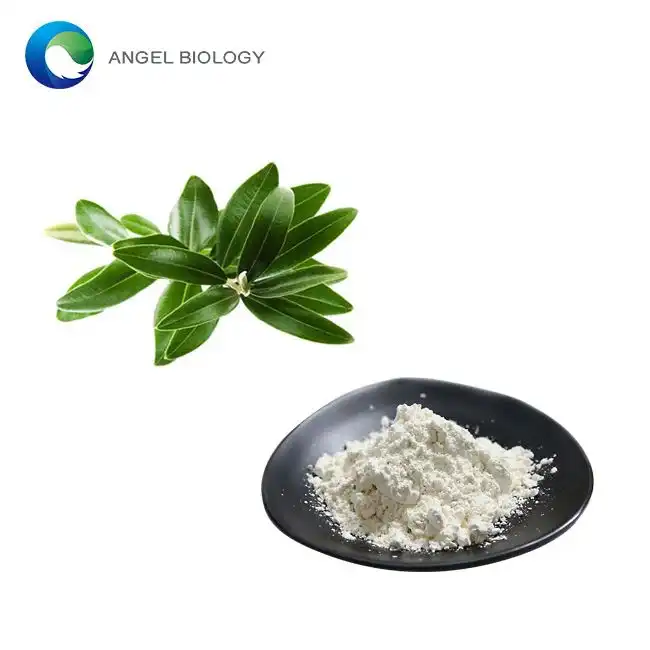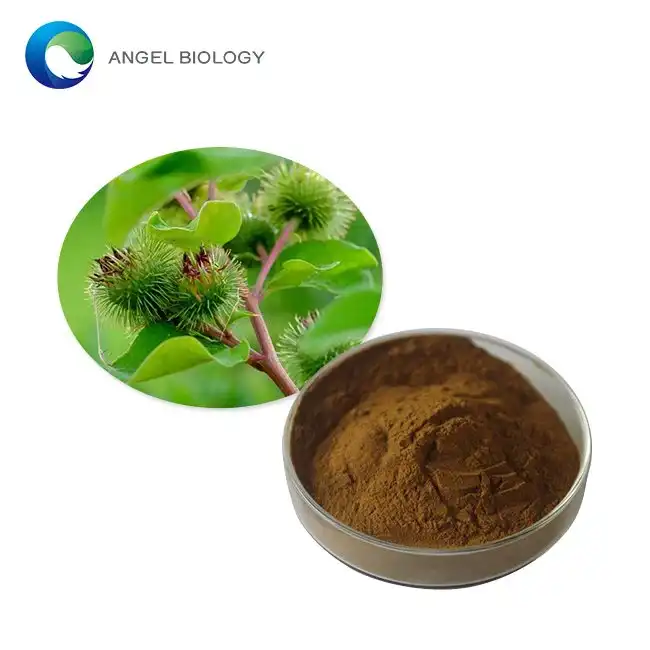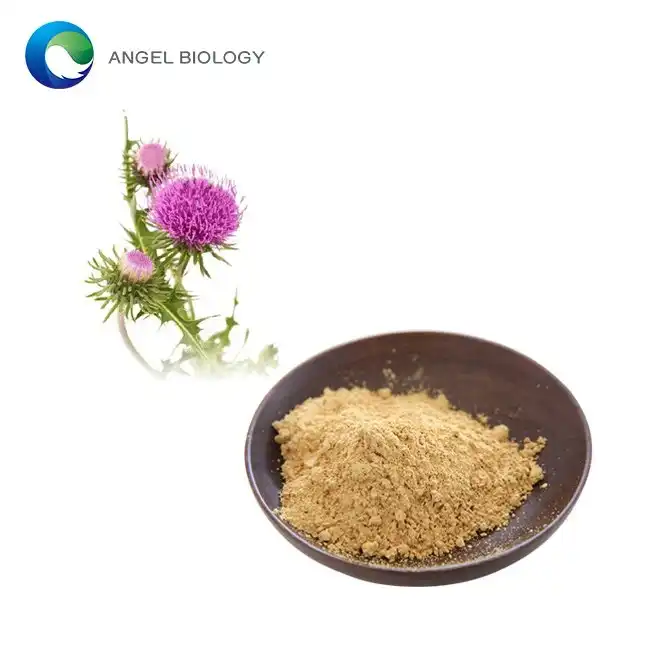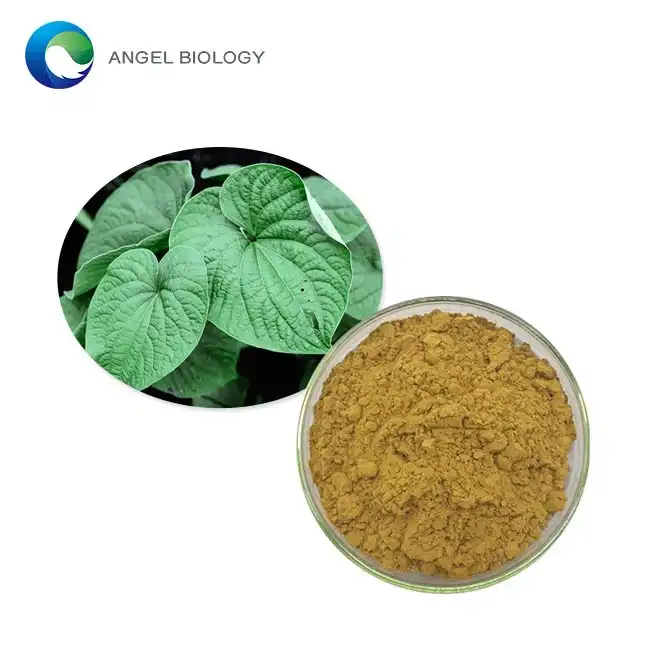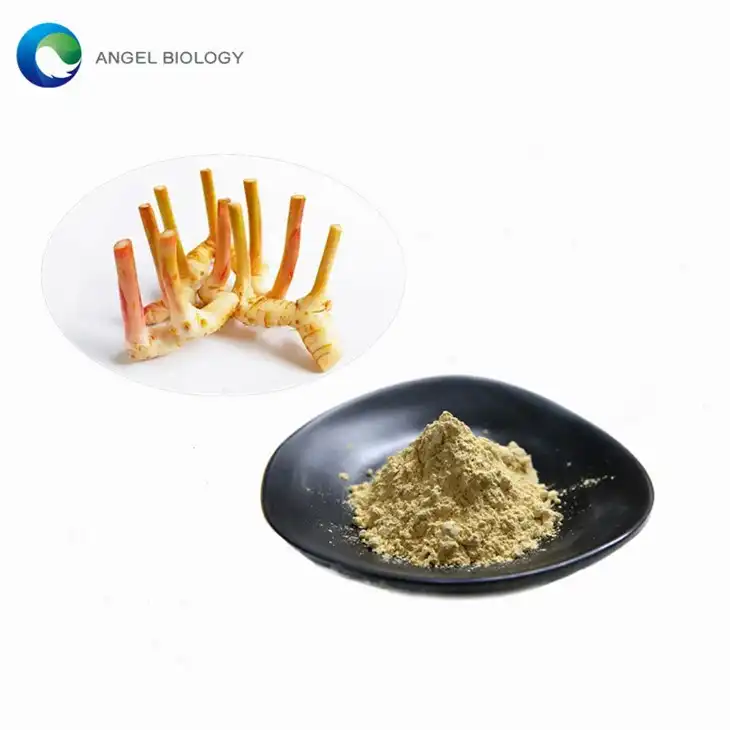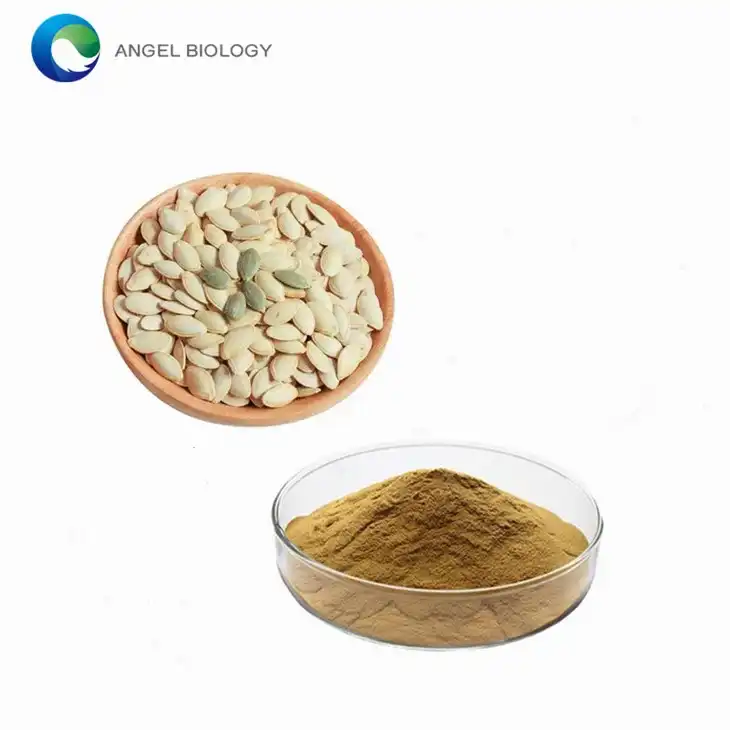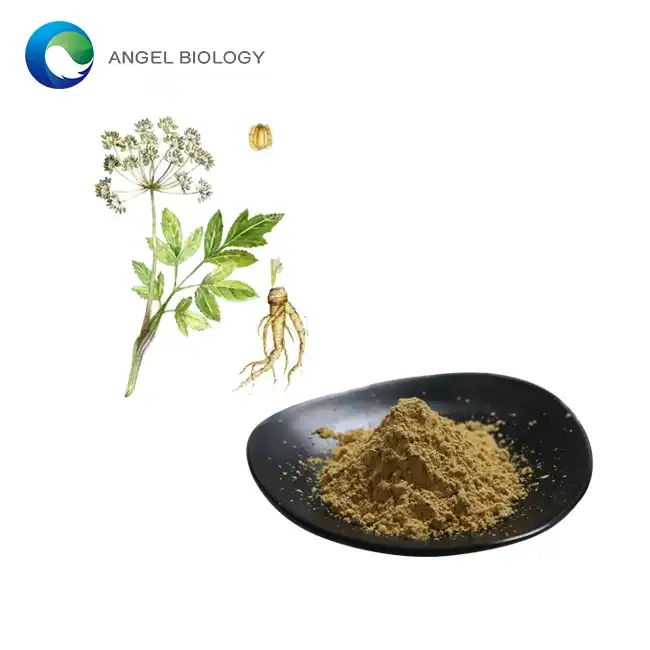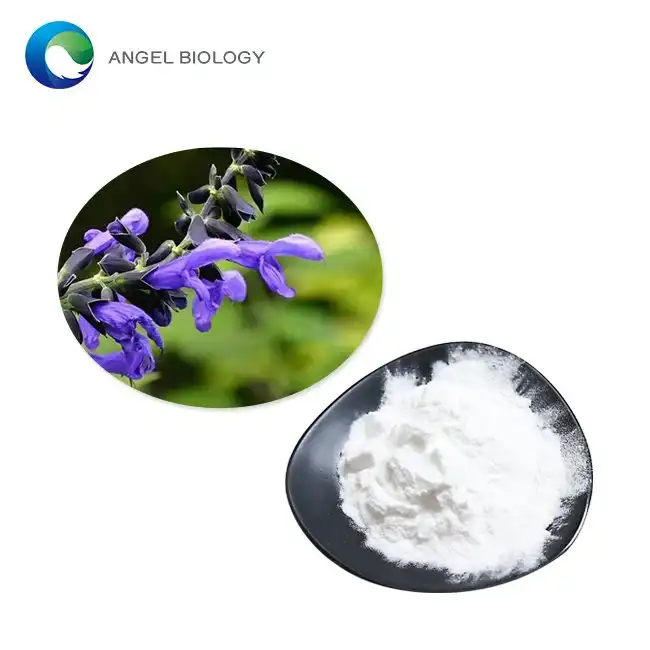What Makes Green Tea Extract Powder Different from Other Plant Extracts?
In the vast world of botanical supplements, Green Tea Extract Powder stands out as a remarkable and unique natural ingredient that has captured the attention of health enthusiasts, researchers, and wellness professionals worldwide. This extraordinary powder, derived from the leaves of Camellia sinensis, offers a concentrated form of green tea's powerful bioactive compounds, distinguishing itself from other plant extracts through its exceptional nutritional profile, versatile applications, and scientifically proven health benefits. Understanding the distinctive characteristics of Green Tea Extract Powder requires a deep dive into its composition, potential advantages, and the innovative processes that transform ordinary green tea leaves into a potent nutritional powerhouse.
How Does Green Tea Extract Powder Differ in Nutritional Composition?
What Unique Phytochemicals Make Green Tea Extract Powder Special?
Green Tea Extract Powder represents a remarkable concentration of bioactive compounds that set it apart from other plant extracts. At the heart of its nutritional distinction are polyphenols, particularly catechins like epigallocatechin gallate (EGCG), which are abundantly present in this powerful powder. These polyphenols are not merely passive ingredients but active molecular agents that contribute significantly to the extract's health-promoting properties. Green Tea Extract Powder undergoes a meticulous extraction process that preserves and concentrates these delicate compounds, ensuring that consumers receive a potent and bioavailable form of these beneficial molecules. The unique extraction techniques employed in creating Green Tea Extract Powder allow for a more concentrated and refined product compared to traditional tea consumption, enabling individuals to access a higher density of beneficial compounds in a convenient, easily consumable form.
Why Are the Antioxidant Levels in Green Tea Extract Powder Exceptional?
The antioxidant profile of Green Tea Extract Powder is truly extraordinary, representing a quantum leap beyond traditional plant extracts. Unlike many botanical supplements that offer moderate antioxidant protection, Green Tea Extract Powder delivers an unprecedented concentration of antioxidants, particularly catechins and polyphenols, which demonstrate remarkable free radical neutralizing capabilities. Scientific research has consistently highlighted the superior antioxidant potential of Green Tea Extract Powder, showing that its antioxidant capacity significantly surpasses that of many other plant-based supplements. These antioxidants work synergistically to combat oxidative stress, protect cellular structures, and support overall metabolic health. The powder's unique processing method ensures that these delicate antioxidant compounds remain stable and bioactive, providing users with a concentrated and potent nutritional supplement that offers comprehensive cellular protection.
How Does the Extraction Process Enhance Green Tea Extract Powder's Nutritional Value?
The extraction process for Green Tea Extract Powder is a sophisticated technological marvel that dramatically enhances its nutritional value compared to conventional plant extracts. Advanced techniques like supercritical CO2 extraction and water-based extraction methods are employed to isolate and concentrate the most beneficial compounds from green tea leaves while preserving their molecular integrity. This intricate process ensures that Green Tea Extract Powder maintains a high concentration of catechins, particularly EGCG, without introducing harmful chemical solvents or compromising the extract's natural nutritional profile. The result is a pure, potent powder that offers a more refined and concentrated nutritional experience than traditional tea consumption or less advanced extraction methods. Manufacturers carefully control temperature, pressure, and extraction duration to maximize the preservation of delicate phytonutrients, creating a supplement that represents the pinnacle of green tea's nutritional potential.

What Are the Metabolic Benefits of Green Tea Extract Powder?
How Does Green Tea Extract Powder Support Metabolic Health?
Green Tea Extract Powder emerges as a powerful ally in metabolic health management, offering a multifaceted approach to supporting physiological functions beyond traditional plant extracts. The powder's rich composition of catechins and caffeine works synergistically to enhance metabolic rate, promote fat oxidation, and support weight management strategies. Scientific studies have consistently demonstrated that Green Tea Extract Powder can stimulate thermogenesis, the body's heat production process, which consequently increases caloric expenditure. Unlike many metabolic supplements that rely on synthetic compounds, this natural extract provides a holistic approach to metabolic support, leveraging the body's inherent physiological mechanisms. The carefully concentrated polyphenols in Green Tea Extract Powder interact with metabolic enzymes and cellular receptors, potentially modulating insulin sensitivity and supporting glucose metabolism, thus offering a comprehensive approach to metabolic wellness.
Can Green Tea Extract Powder Influence Cellular Energy Metabolism?
The influence of Green Tea Extract Powder on cellular energy metabolism represents a fascinating frontier in nutritional science. Its unique blend of bioactive compounds demonstrates remarkable potential in modulating mitochondrial function and cellular energy production. Research suggests that the catechins in Green Tea Extract Powder can positively interact with mitochondrial membranes, potentially enhancing electron transport chain efficiency and supporting optimal energy generation. This precise mechanism distinguishes Green Tea Extract Powder from conventional plant extracts by offering a more targeted approach to cellular energetics. The powder's compounds may help optimize mitochondrial respiration, reduce oxidative stress within cellular energy production systems, and support overall metabolic flexibility. Such comprehensive cellular support extends beyond mere energy production, potentially contributing to improved metabolic resilience and long-term physiological adaptation.
What Makes Green Tea Extract Powder a Potential Metabolic Regulator?
Green Tea Extract Powder's role as a potential metabolic regulator stems from its complex and nuanced interaction with various physiological systems. Unlike simplistic metabolic supplements, this extract offers a sophisticated approach to metabolic modulation through its diverse phytochemical composition. The combination of catechins, caffeine, and other bioactive compounds works in a harmonious manner to support metabolic homeostasis. Scientific investigations have revealed that Green Tea Extract Powder may help regulate adipokine secretion, influence lipid metabolism, and support healthy inflammatory responses at the cellular level. The powder's ability to potentially modulate key metabolic signaling pathways sets it apart from traditional plant extracts, offering a more holistic and integrated approach to metabolic health support.
How Does Green Tea Extract Powder Differ in Its Potential Health Applications?
What Unique Health-Promoting Mechanisms Does Green Tea Extract Powder Possess?
Green Tea Extract Powder distinguishes itself through its remarkable array of potential health-promoting mechanisms that extend far beyond conventional plant extracts. The powder's rich polyphenol content, particularly its high concentration of EGCG, demonstrates potential interactions with multiple physiological pathways, suggesting broad-spectrum health benefits. Unlike many botanical supplements that offer limited functional capabilities, Green Tea Extract Powder exhibits potential modulatory effects across various biological systems, including cardiovascular, neurological, and immune functions. Scientific research has indicated that the powder's compounds may support cellular communication, potentially influence genetic expression, and provide comprehensive protective mechanisms against oxidative stress and inflammatory processes.
How Does the Bioavailability of Green Tea Extract Powder Enhance Its Effectiveness?
The bioavailability of Green Tea Extract Powder represents a significant technological advancement in nutritional supplementation. Through sophisticated extraction and processing techniques, manufacturers have developed methods to enhance the absorption and utilization of the powder's beneficial compounds. Traditional green tea consumption offers limited bioavailability, with many beneficial molecules being poorly absorbed by the human digestive system. In contrast, Green Tea Extract Powder undergoes specialized processing that may improve molecular accessibility, potentially increasing the body's capacity to utilize its rich phytonutrient profile. Advanced techniques like microencapsulation and strategic combination with absorption-enhancing compounds further optimize the powder's bioavailability, ensuring that consumers can maximize the potential health benefits of this extraordinary supplement.
potential health benefits of this extraordinary supplement.
What Innovative Applications Differentiate Green Tea Extract Powder?
Green Tea Extract Powder transcends traditional supplement boundaries, emerging as a versatile ingredient with innovative applications across multiple industries. Beyond dietary supplementation, this powder has found promising roles in functional food development, cosmeceutical formulations, and even potential nutraceutical interventions. Its unique composition allows for integration into diverse product formats, from beverages and nutritional bars to skincare formulations and pharmaceutical preparations. The powder's stability, concentrated nutritional profile, and broad-spectrum bioactive properties make it an attractive ingredient for researchers and product developers seeking natural, scientifically-supported components. This versatility distinguishes Green Tea Extract Powder from more narrowly focused plant extracts, positioning it as a multifunctional ingredient with expansive potential.
Conclusion
Green Tea Extract Powder represents a pinnacle of natural ingredient innovation, offering a concentrated, scientifically validated botanical supplement that surpasses traditional plant extracts through its unique composition, advanced processing, and multifaceted health-promoting potential.
Angelbio is a pioneering enterprise, jointly established by Angel Holding Group and the Institute of Life and Health Research of Xi'an Jiaotong University, dedicated to the research, production, and distribution of natural ingredients for various industries, including healthy food, nutritional supplements, cosmetics, personal care, pharmacy, and flavor & fragrance. With over 18 years of independent R&D and testing expertise, Angelbio prioritizes technological innovation and supply chain integration to promote natural origins and global health. Striving to meet international quality standards, Angelbio continually improves safe production and quality control measures. Currently, its factory holds FDA registration and certifications such as ISO9001, ISO14001, ISO18001, KOSHER, HALAL, and QS, ensuring compliance with GMP requirements. Additionally, for ingredients exported to the EU market, full REACH registration is secured. Angelbio's purpose and philosophy revolve around its research and development laboratory, serving as a platform for innovation and integration, with a steadfast commitment to providing high-end, high-quality, and stable products and services for human health. As a leading Green Tea Extract Powder manufacturer in China, Angelbio's products are trusted and praised by customers. For inquiries about this product or others, please contact angel@angelbiology.com for dedicated service. These represent Angelbio's corporate advantages.
References
1. Cabrera, C., Artacho, R., & Giménez, R. (2006). Beneficial effects of green tea—a review. Journal of the American College of Nutrition, 25(2), 79-99.
2. Khan, N., & Mukhtar, H. (2007). Tea polyphenols for health promotion. Life Sciences, 81(7), 519-533.
3. Chacko, S. M., Thambi, P. T., Kuttan, R., & Nishigaki, I. (2010). Beneficial effects of green tea: A literature review. Chinese Medicine, 5(1), 13.
4. Weiss, D. J., & Anderton, C. R. (2003). Determination of catechins in tea beverages by high-performance liquid chromatography. Journal of Chromatography A, 1011(1-2), 173-180.
5. Yang, C. S., Wang, X., Lu, G., & Picinich, S. C. (2009). Cancer prevention by tea: animal studies, molecular mechanisms and human relevance. Nature Reviews Cancer, 9(6), 429-439.
6. Lambert, J. D., & Yang, C. S. (2003). Cancer chemopreventive activity and bioavailability of tea and tea polyphenols. Archives of Toxicology, 77(4), 179-188.



